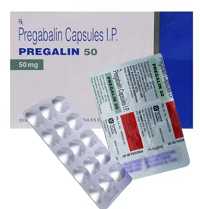Understanding Neuropathic Pain
Neuropathic pain differs from nociceptive pain and requires targeted interventions for effective management. It manifests as shooting, burning, or tingling sensations, often accompanied by hypersensitivity or numbness. Understanding the underlying mechanisms of neuropathic pain is crucial for implementing appropriate coping strategies.
Pharmacological Interventions
Pharmacological interventions play a central role in neuropathic pain management. Anticonvulsants, antidepressants, and analgesics are commonly prescribed to modulate pain signals and alleviate symptoms. It is essential to work closely with healthcare providers to determine the most suitable medication regimen and monitor for potential side effects.
Non-Pharmacological Approaches
In addition to pharmacotherapy, non-pharmacological approaches offer valuable adjuncts to pain management. Physical therapy, occupational therapy, and transcutaneous electrical nerve stimulation (TENS) can help improve physical function and reduce pain intensity. Cognitive-behavioral therapy (CBT) and mindfulness-based stress reduction techniques address the psychological aspects of pain and promote coping skills.
Lifestyle Modifications
Lifestyle modifications can significantly impact neuropathic pain outcomes. Regular exercise, healthy diet, and adequate sleep contribute to overall well-being and may help reduce pain severity. Avoiding exacerbating factors such as smoking and excessive alcohol consumption is also important for pain management.
Integrative Medicine
Integrative medicine approaches offer complementary strategies for managing neuropathic pain. Acupuncture, massage therapy, and herbal supplements may provide additional relief for some individuals. While evidence for their efficacy varies, many individuals find these modalities beneficial when used in conjunction with conventional treatments.
Support and Education
Living with neuropathic pain can be challenging, but individuals need not face it alone. Support groups, online forums, and patient advocacy organizations offer valuable resources, peer support, and information sharing. Educating oneself about the condition and available treatment options empowers individuals to actively participate in their care.
Coping Strategies
Effective coping strategies are essential for managing neuropathic pain on a day-to-day basis. Pacing activities, practicing relaxation techniques, and utilizing distraction can help individuals manage pain flare-ups and minimize their impact on daily life. Developing a personalized coping toolbox ensures access to various strategies tailored to individual needs.
Conclusion
Managing neuropathic pain requires a comprehensive and multi-faceted approach that addresses both physical and psychological aspects. By implementing evidence-based strategies, individuals can enhance pain control, improve function, and reclaim their quality of life.










